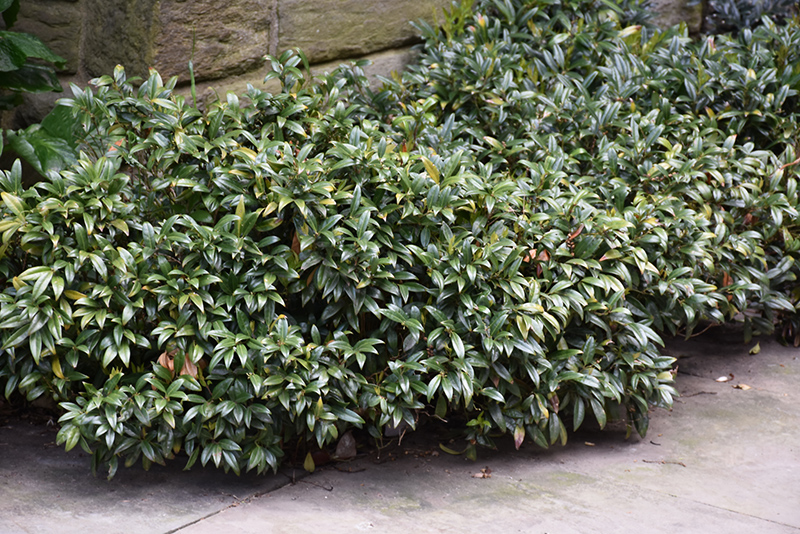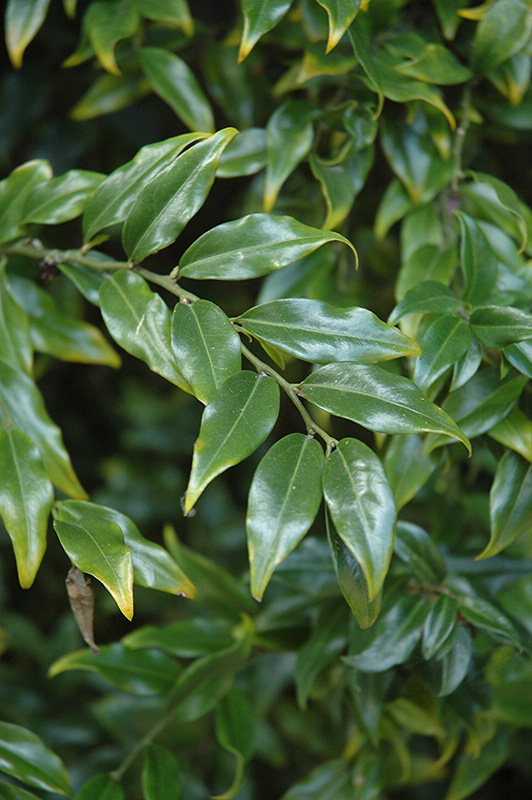Plant Search & Info
Height: 5 feet Spread: 3 feet
Sunlight:
Hardiness Zone: 6b Description: This attractive rounded shrub offers deep green glossy foliage and sweetly fragrant blooms in the dead of winter, unlike most species; flowering is followed by red berries that turn black over summer and persist until the following winter Ornamental Features Sweet Box is primarily grown for its highly ornamental fruit. It features an abundance of magnificent black berries in early summer. It has attractive dark green evergreen foliage. The glossy pointy leaves are highly ornamental and remain dark green throughout the winter. It features dainty clusters of fragrant creamy white flowers along the branches from early fall to late winter. Landscape Attributes Sweet Box is a dense multi-stemmed evergreen shrub with a more or less rounded form. Its average texture blends into the landscape, but can be balanced by one or two finer or coarser trees or shrubs for an effective composition. This shrub will require occasional maintenance and upkeep, and should only be pruned after flowering to avoid removing any of the current season's flowers. It has no significant negative characteristics. Sweet Box is recommended for the following landscape applications; Planting & Growing Sweet Box will grow to be about 5 feet tall at maturity, with a spread of 3 feet. It has a low canopy, and is suitable for planting under power lines. It grows at a medium rate, and under ideal conditions can be expected to live for approximately 30 years. This shrub does best in partial shade to shade. It does best in average to evenly moist conditions, but will not tolerate standing water. It is not particular as to soil pH, but grows best in rich soils. It is somewhat tolerant of urban pollution. This species is not originally from North America. Sweet Box makes a fine choice for the outdoor landscape, but it is also well-suited for use in outdoor pots and containers. Because of its height, it is often used as a 'thriller' in the 'spiller-thriller-filler' container combination; plant it near the center of the pot, surrounded by smaller plants and those that spill over the edges. It is even sizeable enough that it can be grown alone in a suitable container. Note that when grown in a container, it may not perform exactly as indicated on the tag - this is to be expected. Also note that when growing plants in outdoor containers and baskets, they may require more frequent waterings than they would in the yard or garden.![]()
![]()
![]()
![]()
![]()
![]()
![]()
![]()
![]()
![]()
![]()
![]()
![]()



